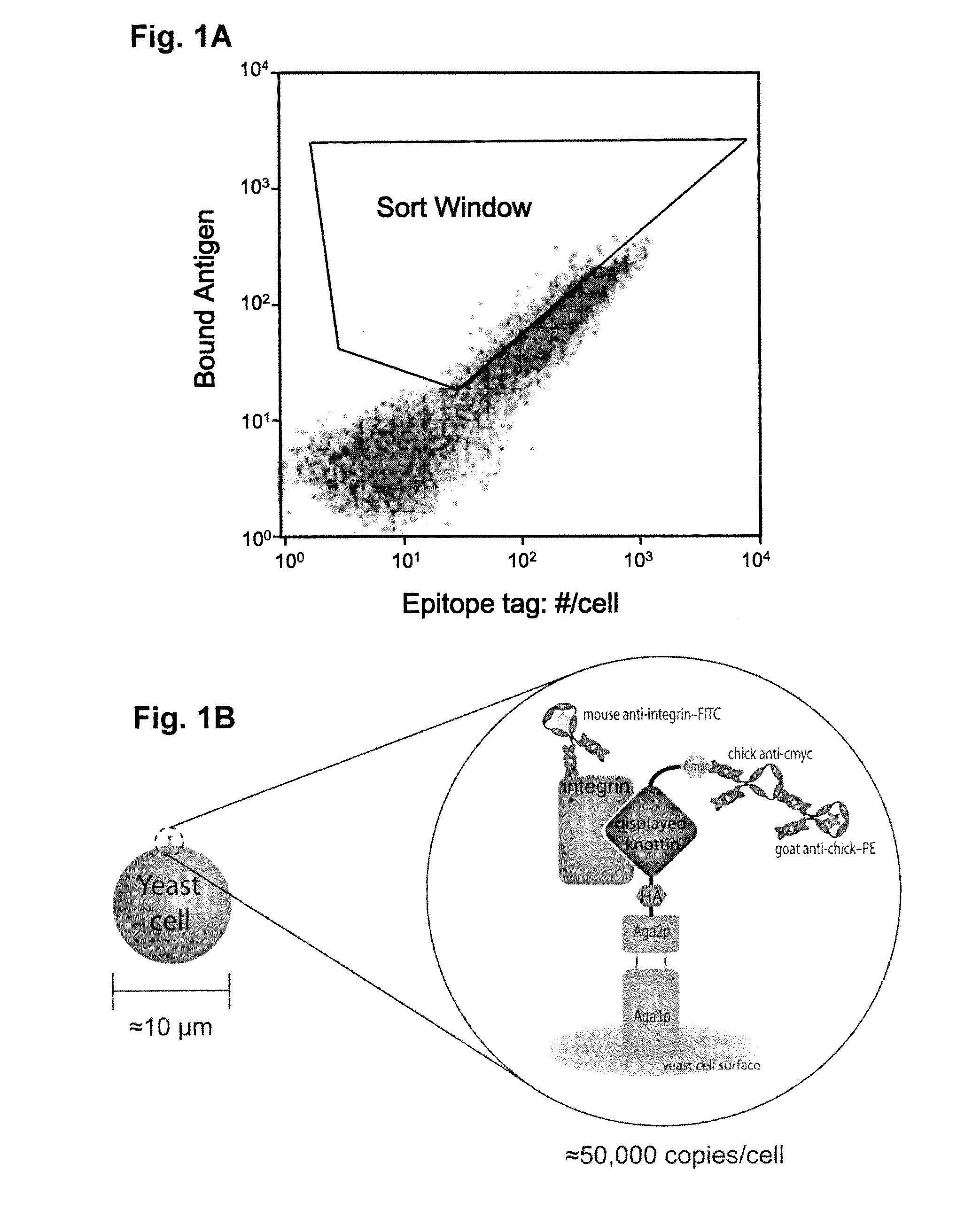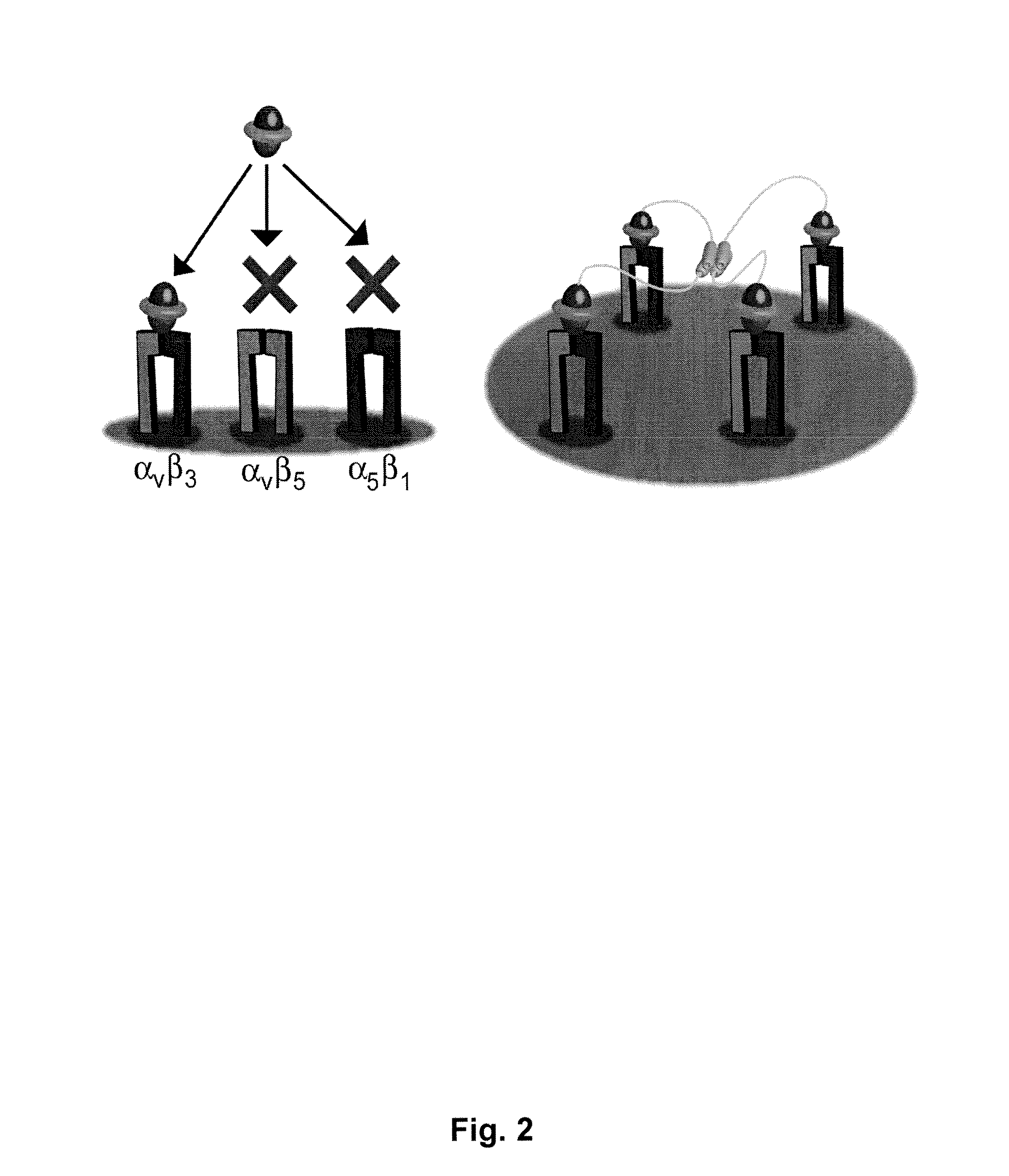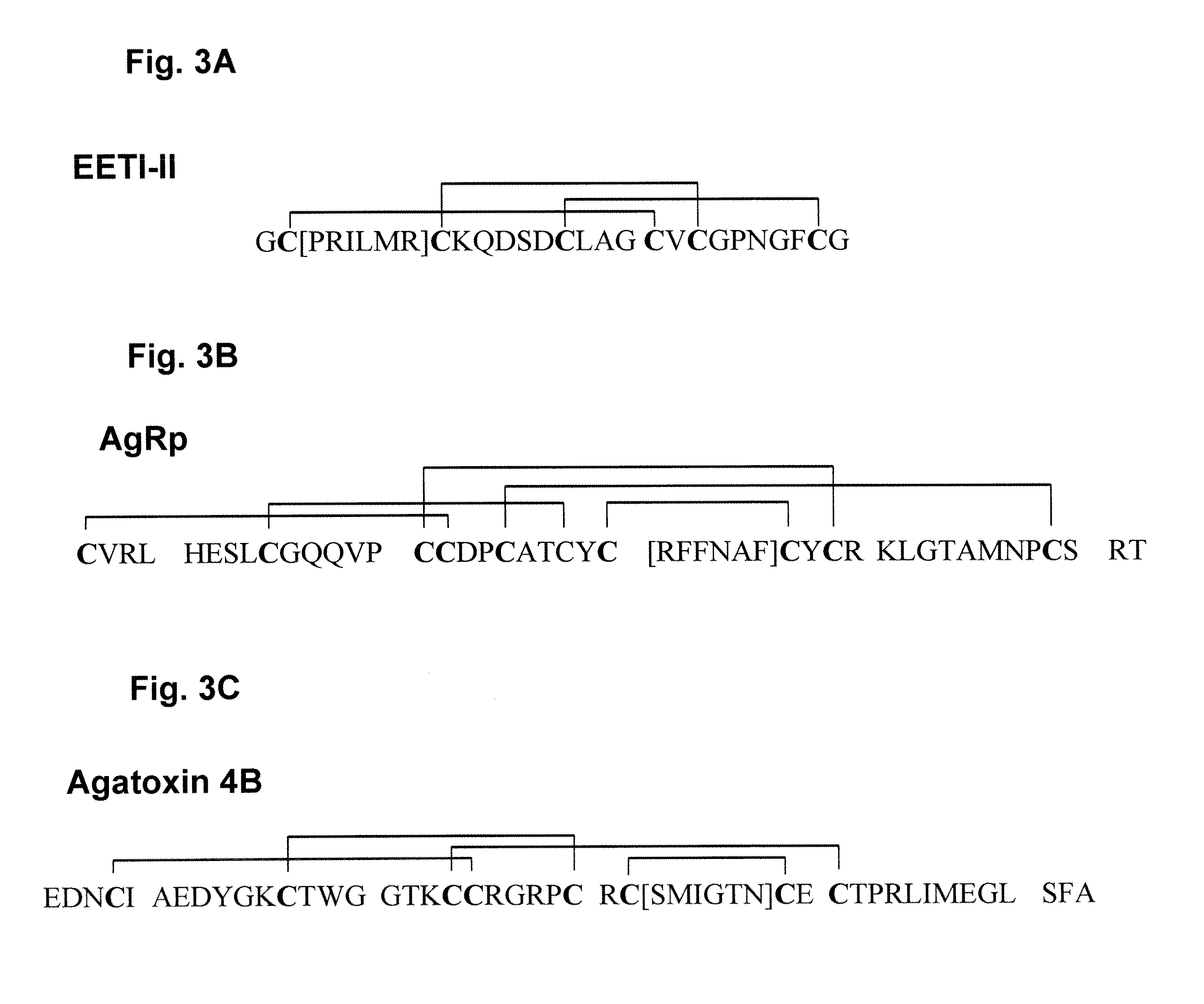Engineered integrin binding peptides
a technology of integrin and binding peptides, applied in the field of engineered integrin binding peptides, can solve the problems of limiting application, expansion and accumulation, and achieve the effect of blocking angiogenesis and promoting cell adhesion
- Summary
- Abstract
- Description
- Claims
- Application Information
AI Technical Summary
Benefits of technology
Problems solved by technology
Method used
Image
Examples
Embodiment Construction
Overview
[0057]The present invention involves the selection of a knottin protein as a peptide framework (scaffold) and replacing a portion of the sequence that appears on the surface with a specific binding sequence, e.g., containing an integrin binding sequence (RGD). The resulting engineered peptides have high affinity and specificity for selected integrins present on surfaces of tumor cells, epithelial cells, and the like.
[0058]Directed evolution is a useful technology for creating novel biomolecules that enhance or mimic protein function. Small polypeptides with applications as therapeutics and research tools were developed using directed evolution. These peptides are amenable to chemical synthesis and offer facile incorporation into biomaterials. Using molecular cloning, biologically active amino acid sequences derived from cell adhesion proteins (fibronectin) were grafted into several stable, constrained knottin peptide frameworks (EETI, AgRP and Agatoxin IVB) and were shown to...
PUM
| Property | Measurement | Unit |
|---|---|---|
| molecular weight | aaaaa | aaaaa |
| humidity | aaaaa | aaaaa |
| humidity | aaaaa | aaaaa |
Abstract
Description
Claims
Application Information
 Login to View More
Login to View More - R&D
- Intellectual Property
- Life Sciences
- Materials
- Tech Scout
- Unparalleled Data Quality
- Higher Quality Content
- 60% Fewer Hallucinations
Browse by: Latest US Patents, China's latest patents, Technical Efficacy Thesaurus, Application Domain, Technology Topic, Popular Technical Reports.
© 2025 PatSnap. All rights reserved.Legal|Privacy policy|Modern Slavery Act Transparency Statement|Sitemap|About US| Contact US: help@patsnap.com



